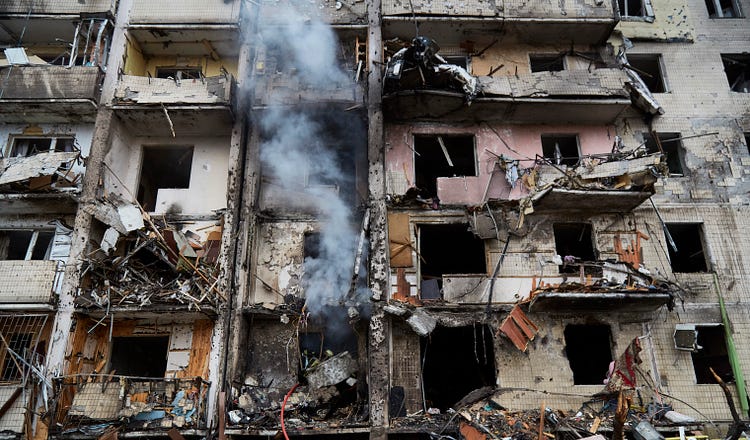Russia’s War on Ukraine: A Roundtable

Firemen extinguish a fire inside a residential building that was hit by a missile on February 25, 2022 in Kyiv, Ukraine. (Pierre Crom/Getty Images)
Niall Ferguson, Walter Russell Mead and Francis Fukuyama weigh in.
494
As I write this, Russia’s war against Ukraine is entering its second week. Air raid sirens are ringing out over the Ukrainian capital of Kyiv. Russian troops are laying siege to the country’s second-largest city, Kharkiv. The southern city of Kherson has fallen. Nearly a million Ukrainians have fled their homes.
Why did Putin invade Ukraine at this mome…
Continue Reading The Free Press
To support our journalism, and unlock all of our investigative stories and provocative commentary about the world as it actually is, subscribe below.
$8.33/month
Billed as $100 yearly
$10/month
Billed as $10 monthly
Already have an account?
Sign In

